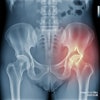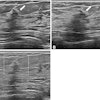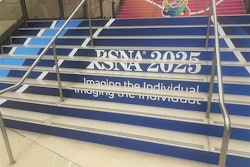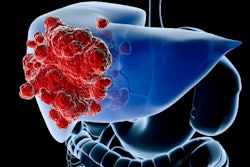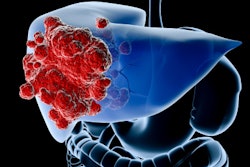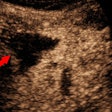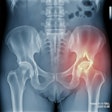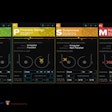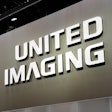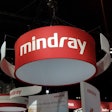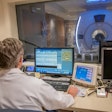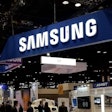Microbubble ultrasound contrast agents improve liver tumor response to radiotherapy and thus increase patient survival, researchers have reported.
In two studies, a team led by John Eisenbrey, PhD, of Thomas Jefferson University in Philadelphia found that patients with aggressive intrahepatic cholangiocarcinoma (ICC) and liver metastasis showed a greater than 50% improvement in tumor response rates and that patients with hepatocellular carcinoma (HCC) experienced "significant improvement on both tumor response and patient survival when radiotherapy embolization was enhanced using a microbubble ultrasound contrast agent and ultrasound." The group's results were presented on September 10 at the International Contrast Ultrasound Society (ICUS) meeting in Chicago.
Standard radioembolization therapy for liver cancer uses glass beads filled with the radioactive isotope yttrium-90 (Y-90), which are distributed to the tumor via a catheter. In particular, ICC tumors tend to be aggressive and have a poor prognosis, Eisenbrey said, noting, however, that although prior studies have shown favorable results for CEUS-enhanced radiotherapy in patients with breast and head and neck cancer, "these [studies] are the first trials showing safety and feasibility for liver cancer."
"Standard CEUS utilizes microbubble ultrasound contrast agents (UCAs) to enhance diagnostic ultrasound images, but UCA uses are now expanding to therapy, … [and] UCAs do not contain iodine or gadolinium and are not nephrotoxic," he said.

